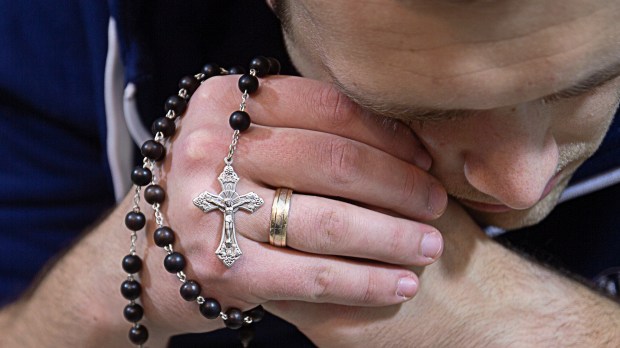Lenten Campaign 2025
This content is free of charge, as are all our articles.
Support us with a donation that is tax-deductible and enable us to continue to reach millions of readers.
Obtaining indulgences remains a mysterious and confusing practice to some, especially to those outside of the Catholic Church. Yet, it is a practice the Church continues to support, even listing particular ways of obtaining a plenary indulgence.
The Catechism of the Catholic Church explains briefly the theology behind indulgences.
“An indulgence is a remission before God of the temporal punishment due to sins whose guilt has already been forgiven, which the faithful Christian who is duly disposed gains under certain prescribed conditions through the action of the Church which, as the minister of redemption, dispenses and applies with authority the treasury of the satisfactions of Christ and the saints.”
“An indulgence is partial or plenary according as it removes either part or all of the temporal punishment due to sin.” The faithful can gain indulgences for themselves or apply them to the dead.
CCC 1471
Aleteia also has a “primer” on indulgences that goes more in-depth into this complex topic.
Common ways to obtain a plenary indulgence
First of all, the basic requirements for plenary indulgences are as follows:
- Sacramental Confession
- Eucharistic Communion
- Prayer for the intentions of the Supreme Pontiff.
It is further required that all attachment to sin, even to venial sin, be absent. Furthermore, “The three conditions may be fulfilled several days before or after the performance of the prescribed work.”
Here is a partial list of some of the more common ways to obtain a plenary indulgence year round.
1 Adoration of the Blessed Sacrament for at least one half hour
Simply spend 30 minutes adoring Jesus in the Blessed Sacrament.
2Devout reading of the Sacred Scriptures for at least one half hour
Read any part of the Bible for 30 minutes.
3The pious exercise of the Way of the Cross
Perform the Way of the Cross devotion any time of the year.
4Pray the Rosary in a church or public oratory or in a family group
Praying the Rosary in public, in a church, chapel, or even at home with the family, can grant a plenary indulgence.
5Go on a retreat
A plenary indulgence is granted to the faithful, who spend at least three whole days in the
spiritual exercises of a retreat.
6Receive a Papal Blessing
A plenary indulgence is granted to the faithful who piously and devoutly receive, even by
radio transmission, the Blessing of the Sovereign Pontiff, when imparted to Rome and the
World.

